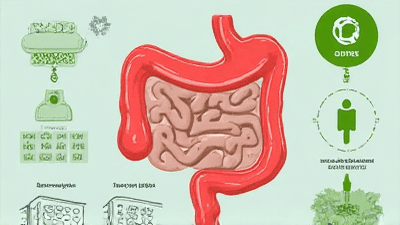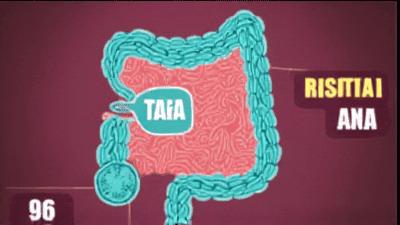
Gut health is a topic that has garnered significant attention in recent years, and for good reason. Our gut plays a crucial role in determining overall health, influencing everything from digestion to immune function, mood, and even skin health. At the heart of this conversation is the microbiome—trillions of microorganisms living in our digestive tract.
Understanding the Microbiome
The microbiome refers to the complex ecosystem of bacteria, viruses, fungi, and other microorganisms that reside in our bodies, particularly in the gastrointestinal tract. While most people associate germs with disease, the majority of microbes in our gut are beneficial and play essential roles in maintaining our health.
The Composition of the Microbiome
The gut microbiome consists of various species, both good and bad. Ideally, a healthy microbiome contains a diverse range of beneficial bacteria that work symbiotically to support our body's functions. Two main groups of bacteria within the gut microbiome include:
-
Firmicutes: This group helps with the fermentation of dietary fiber, producing short-chain fatty acids that nourish the gut lining and regulate metabolism.
-
Bacteroidetes: These bacteria play a role in breaking down complex carbohydrates and promoting nutrient absorption.
The balance between these bacteria is vital; an imbalance can lead to dysbiosis, a state in which harmful bacteria outnumber the beneficial ones. Dysbiosis is associated with various health issues, including obesity, diabetes, and inflammatory diseases.
How the Microbiome Affects Health
The microbiome impacts nearly every aspect of our physical and mental health. Some key functions of the gut microbiome include:
- Digestion: Beneficial bacteria help break down food, making nutrients more available for absorption. They also produce enzymes that aid digestion.
- Immune Function: The microbiome plays a critical role in defending against pathogens. A healthy gut microbiome can enhance the body's immune response and reduce inflammation.
- Mental Health: Recent research shows a strong connection between the gut and brain, known as the gut-brain axis. The microbiome produces neurotransmitters like serotonin that affect mood and mental well-being.
- Metabolism: The composition of the gut microbiome influences how we metabolize food. Certain bacteria can affect energy extraction from food, impacting weight management and metabolic health.
Factors That Influence Gut Health
Several factors can impact the health of your gut microbiome, including diet, lifestyle, environment, and medications.
1. Diet
Diet is one of the most significant factors affecting gut health. A diet rich in fiber, whole foods, and fermented products can promote a healthy microbiome, while a diet high in processed foods, sugars, and unhealthy fats can lead to dysbiosis.
- Fiber: Fiber serves as a prebiotic, providing nourishment for beneficial gut bacteria. Foods high in fiber include fruits, vegetables, legumes, and whole grains.
- Fermented Foods: Foods such as yogurt, kefir, sauerkraut, kimchi, and miso contain live beneficial bacteria known as probiotics, which can help maintain a balanced microbiome.
- Limit Sugar and Processed Foods: High-sugar and highly processed foods can promote the growth of harmful bacteria and contribute to inflammation.
2. Lifestyle
Lifestyle choices, including physical activity, sleep patterns, and stress management, also play a role in gut health.
- Exercise: Regular physical activity has been shown to positively influence the diversity of the gut microbiome, enhancing overall gut health.
- Sleep: Poor sleep quality and irregular sleep patterns can impact gut health. Aim for 7 to 9 hours of quality sleep each night to support your microbiome.
- Stress: Chronic stress can negatively affect gut health, leading to dysbiosis. Techniques such as mindfulness, meditation, and deep breathing can help manage stress.
3. Environment
Environmental factors can impact the gut microbiome from early childhood and onward.
- Birth Method: Babies born via cesarean section may have different gut microbiomes than those born vaginally, affecting their immune development.
- Antibiotic Use: Antibiotics can disrupt the balance of gut bacteria by killing both harmful and beneficial microbes. It's crucial to use antibiotics only when necessary and to follow up with probiotics if prescribed.
4. Medication
Certain medications, particularly antibiotics, can significantly impact gut health. In addition to antibiotics, other medications such as proton pump inhibitors (used for acid reflux) and non-steroidal anti-inflammatory drugs (NSAIDs) can also influence the gut microbiome. Always consult your healthcare provider about the potential effects of any medications you take.
Signs of Poor Gut Health
Many people may not realize that their gut health is compromised. Here are some common signs that may indicate an unhealthy microbiome:
- Digestive Issues: Symptoms such as bloating, gas, diarrhea, constipation, and heartburn can signify an imbalance in gut bacteria.
- Food Intolerances: Difficulty digesting certain foods or experiencing adverse reactions may indicate a disrupted gut microbiome.
- Unexplained Weight Changes: Unintentional weight gain or loss can result from changes in gut health and metabolism.
- Fatigue and Sleep Disturbances: Chronic fatigue or sleep disturbances may be linked to an unhealthy gut microbiome and its impact on hormone regulation and inflammation.
- Skin Conditions: Conditions like eczema, acne, or other skin irritations may be aggravated by gut health issues and inflammation.

Strategies to Improve Gut Health
Fortunately, there are many effective strategies to promote a healthy gut microbiome. Implementing these practices can improve digestion, boost the immune system, and enhance overall wellness.
1. Eat a Diverse Range of Foods
A diverse diet leads to a diverse microbiome, which is essential for gut health. Aim to include a variety of fruits, vegetables, whole grains, proteins, and healthy fats in your diet. Each type of food promotes different bacterial species, contributing to a balanced microbiome.
2. Focus on Fiber-Rich Foods
Incorporate plenty of fiber-rich foods into your diet to support beneficial bacteria. Examples include:
- Fruits: Berries, apples, and bananas are excellent sources of fiber and antioxidants.
- Vegetables: Leafy greens, carrots, and broccoli provide crucial nutrients and fiber.
- Legumes: Beans, lentils, and chickpeas are high in fiber and protein, making them excellent choices for gut health.
- Whole Grains: Include oats, quinoa, brown rice, and whole wheat products for added fiber.
3. Include Fermented Foods
Fermented foods are packed with probiotics and can help enhance the diversity and abundance of healthy gut bacteria. Consider adding the following to your diet:
- Yogurt: Look for live and active cultures to maximize probiotic benefits.
- Kefir: This fermented dairy product is rich in probiotics and can be consumed as a drink or added to smoothies.
- Sauerkraut: Fermented cabbage provides beneficial bacteria and is rich in vitamins.
- Kimchi: A spicy Korean fermented vegetable dish that offers probiotics along with a delicious flavor.
- Miso: A fermented soybean paste that can be used in soups and sauces for added nutrients.
4. Stay Hydrated
Staying hydrated is critical for overall health, including gut health. Adequate fluid intake helps maintain the mucosal lining of the intestines and supports the proper function of digestive enzymes.
5. Limit Sugar and Processed Foods
Reducing sugar and processed foods can help keep harmful bacteria in check. Aim to minimize your consumption of sugary snacks, beverages, and fast food. Instead, opt for whole, minimally processed options.
6. Manage Stress
As mentioned earlier, stress can significantly impact gut health. Engaging in stress-reducing activities can promote a healthier microbiome. Consider practicing:
- Mindfulness Meditation: Taking a few minutes to focus on your breath or engage in guided meditation can help reduce stress levels.
- Yoga: This practice combines physical movement and mindfulness, which can improve both mental and gut health.
- Physical Activity: Regular exercise is a natural stress reliever and supports overall health.
7. Get Quality Sleep
Prioritizing sleep can have a profound impact on gut health. Establish a consistent sleep routine and focus on getting enough restful sleep each night.
8. Consider Probiotics
Probiotics are live beneficial bacteria that can help restore balance in your gut microbiome. While it's best to get probiotics from food sources, supplements can also be beneficial, especially after antibiotic treatment. Consult a healthcare professional before starting any new supplement.
Conclusion
Gut health is a crucial aspect of overall well-being that should not be overlooked. By understanding the importance of the microbiome, the factors that influence gut health, and practical strategies to improve it, you can take proactive steps toward better health. A balanced diet, combined with lifestyle changes, can have far-reaching effects on not only your digestive health but also your mental, immune, and overall physical health.
As we continue to learn more about the fascinating world of the gut microbiome and its influence on our health, the importance of digestive wellness becomes even more apparent. Embrace these strategies to cultivate a thriving gut microbiome and reap the many benefits that come with improved gut health.



